ICSZ 2021
OPENING
Keynote: Alberto Orgiazzi (Joint Research Centre, European Commission, Ispra, ITA)
 “Alberto Orgiazzi is a soil biotechnologist working at the European Commission’s Joint Research Centre (JRC) based in Ispra (Italy). He joined the JRC in 2013 as a postdoctoral researcher responsible for the creation of the first-ever Global Soil Biodiversity Atlas, released in 2016, and the development of risk maps for soil organisms in Europe. Currently, as JRC scientific project officer, he coordinates the largest (1,000 sampling locations) soil biodiversity assessment in Europe based on molecular data (metabarcoding and metagenomics).”
“Alberto Orgiazzi is a soil biotechnologist working at the European Commission’s Joint Research Centre (JRC) based in Ispra (Italy). He joined the JRC in 2013 as a postdoctoral researcher responsible for the creation of the first-ever Global Soil Biodiversity Atlas, released in 2016, and the development of risk maps for soil organisms in Europe. Currently, as JRC scientific project officer, he coordinates the largest (1,000 sampling locations) soil biodiversity assessment in Europe based on molecular data (metabarcoding and metagenomics).”
ICSZ-S1: Soil biodiversity in a changing world
Keynote 1: Helen Phillips (Experimental Interaction Ecology, German Centre for Integrative Biodiversity Research (iDiv), Halle-Jena-Leipzig, GER)
 “Increasingly large-scale synthesis studies are being used to determine how biodiversity is responding to human impacts, such as land use change or climate change. However, most of these synthesis studies focus on, or are bias towards, above-ground biodiversity, thus little is known about how below-ground biodiversity is responding to the same pressures. My experience has focused towards compiling large datasets and investigating patterns at a global scale. Currently I am interested in soil fauna, in order to address this gap in our scientific knowledge. Earthworms are ideal to focus on as they are a relatively well-studied and have direct links to ecosystem services based on their functional role. I aim to show how earthworm diversity is responding to human impacts, determine what changes might occur under future climate and land use change scenarios, and what these changes mean for the ecosystem functions that are provided by earthworms that humans rely on.”
“Increasingly large-scale synthesis studies are being used to determine how biodiversity is responding to human impacts, such as land use change or climate change. However, most of these synthesis studies focus on, or are bias towards, above-ground biodiversity, thus little is known about how below-ground biodiversity is responding to the same pressures. My experience has focused towards compiling large datasets and investigating patterns at a global scale. Currently I am interested in soil fauna, in order to address this gap in our scientific knowledge. Earthworms are ideal to focus on as they are a relatively well-studied and have direct links to ecosystem services based on their functional role. I aim to show how earthworm diversity is responding to human impacts, determine what changes might occur under future climate and land use change scenarios, and what these changes mean for the ecosystem functions that are provided by earthworms that humans rely on.”
Keynote 2: Saori Fujii (Department of Forest Entomology, Forestry and Forest Products Research Institute, Tsukuba, JPN)
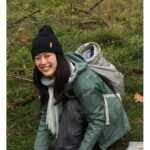 “I am a senior researcher at a Japanese national institute, Forestry and Forest Product Research Institute. I’m working on assessments of soil biodiversity and ecosystem functioning in forests, but my special interest is on collembolan ecology. I want to know anything related to Collembola: e.g., how they can coexist with high stability, what ecological functions they have, and why they are so cute!”
“I am a senior researcher at a Japanese national institute, Forestry and Forest Product Research Institute. I’m working on assessments of soil biodiversity and ecosystem functioning in forests, but my special interest is on collembolan ecology. I want to know anything related to Collembola: e.g., how they can coexist with high stability, what ecological functions they have, and why they are so cute!”
ICSZ-S2: Molecular approaches and new methodologies
Keynote 1: Stefan Geisen (Netherlands Institute of Ecology, Royal Netherlands Academy of Arts and Sciences, Wageningen, NED)
 “I always was interested in soil biodiversity with a particular passion protists and nematodes. In internships at Lund University and Teagasc research station I worked on soil nematodes before I performed my PhD in the Bonkowski lab at the University of Cologne from 2011 to 2014 I. Both taxonomy but mostly ecology of soil protists was the focus in which I described several new species but even families of soil protists. I also identified soil protist communities and expanded the classical view of protists being pure bacterivores to show their importance as parasites, fungal feeders and predators. My postdoc time focused on plant-soil interactions at the Netherlands Institute of Ecology with Wim van der Putten. I expanded my portfolio to study endophytic fungi and entire rhizosphere microbiomes, while continuing to work on protists and again on nematodes. In 2019 I started as an assistant prof in molecular ecology at Wageningen University to continue soil protist and nematode studies.”
“I always was interested in soil biodiversity with a particular passion protists and nematodes. In internships at Lund University and Teagasc research station I worked on soil nematodes before I performed my PhD in the Bonkowski lab at the University of Cologne from 2011 to 2014 I. Both taxonomy but mostly ecology of soil protists was the focus in which I described several new species but even families of soil protists. I also identified soil protist communities and expanded the classical view of protists being pure bacterivores to show their importance as parasites, fungal feeders and predators. My postdoc time focused on plant-soil interactions at the Netherlands Institute of Ecology with Wim van der Putten. I expanded my portfolio to study endophytic fungi and entire rhizosphere microbiomes, while continuing to work on protists and again on nematodes. In 2019 I started as an assistant prof in molecular ecology at Wageningen University to continue soil protist and nematode studies.”
Keynote 2: Michael Traugott (Department of Zoology, University of Innsbruck, Innsbruck, AUT)
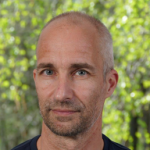 “Michael graduated in Zoology and Agroecology in 1997 and received his doctoral degree from the University of Innsbruck in 2001. After a Marie Curie Fellowship at Cardiff University (UK) he obtained his professorial qualification (“Habilitation”) in Ecology at the University of Innsbruck in 2007. From 2011 he worked as an Associate Professor at the Department of Ecology and he moved to the Department of Zoology in 2020 where he was appointed as Full Professor of Applied Zoology in 2021.
“Michael graduated in Zoology and Agroecology in 1997 and received his doctoral degree from the University of Innsbruck in 2001. After a Marie Curie Fellowship at Cardiff University (UK) he obtained his professorial qualification (“Habilitation”) in Ecology at the University of Innsbruck in 2007. From 2011 he worked as an Associate Professor at the Department of Ecology and he moved to the Department of Zoology in 2020 where he was appointed as Full Professor of Applied Zoology in 2021.
At the Department of Zoology Michael leads the Applied Animal Ecology division. Furthermore, he acts as the head of the Research Unit for Mountain Agriculture at the University of Innsbruck.
Michael’s scientific interests cover the biology and ecology of animals in natural and managed ecosystems and the role they play in providing ecosystem services such as pest control. Michael is especially interested in food web ecology, including the development and application of novel molecular approaches to study trophic networks under natural conditions in both terrestrial and aquatic systems. Together with his team he offers the unique MATI and MOTI university courses where scientists from all over the world get a hands-on start into the world of molecular food web ecology. Michael’s interest in environmental molecular diagnostics is also reflected in his research on environmental DNA, aiming at tracking communities in space and time from soils to water. More information on current and past research projects is available here.
Finally, Michael is a co-founder and CEO of Sinsoma GmbH, a spin-off company of the University of Innsbruck. Sinsoma offers a wide range of DNA services in the fields of biomonitoring, conservation and nature management, providing scientific and technological excellence to scientific, governmental and business sectors alike.”
ICSZ-S3: Ecology and ecosystem functioning
Keynote 1: Jérôme Mathieu (Institute of Ecology and Environmental Science, Sorbonne University, Paris, FRA)
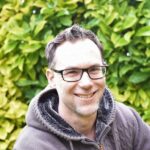 “I am interested in testing theoretical ecological theories on soil communities, with a specific focus on community and meta-communities assembly. I also explore the functional implications of soil community structure, especially at large spatial scales.
“I am interested in testing theoretical ecological theories on soil communities, with a specific focus on community and meta-communities assembly. I also explore the functional implications of soil community structure, especially at large spatial scales.
Can we build general predictions regarding the response and functional role of soil macrofauna community along environmental gradients and human impact? Can we use them to build solutions for agroecology? Do we find the same trends in soil biota than in above-ground taxa? These are a few questions that underpin my research!”
Keynote 2: Ingrid Lubbers (Department of Environmental Sciences, Wageningen University & Research, Wageningen, NED)
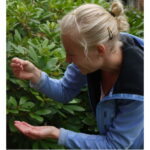 “Visiting Down House, the home of Charles Darwin, I got to see the famous ‘wormstone’ in the northwest corner of its lawn. With the ‘wormstone experiment’, Darwin and his son Horace could measure the movement of the soil displaced by the joint action of earthworms.
“Visiting Down House, the home of Charles Darwin, I got to see the famous ‘wormstone’ in the northwest corner of its lawn. With the ‘wormstone experiment’, Darwin and his son Horace could measure the movement of the soil displaced by the joint action of earthworms.
An ingenious experiment like this exactly illustrates my own fascination for earthworms and other ecosystem engineers: the realization that these “lowly creatures” work the soil on geological timescales and are capable of turning ecosystems upside down.
My enthusiasm for earthworms was first aroused during my PhD research at Wageningen University. I learned that apart from catalysing many ecosystem services, earthworms can also increase/accelerate emissions of greenhouse gases from soil (in temperate agro-ecosystems mainly N2O and CO2).
A couple of years into my PhD research I realized that soil functionality is influenced by more than just earthworm communities. I got the opportunity to study the influence of soil fauna biodiversity on greenhouse gas emissions during my postdoc years. I found that higher faunal species richness leads to increased CO2 emission but decreased N2O emission.
Currently, I am a lecturer in the ‘Soil Geography and Landscape group’ at Wageningen University. Since almost three years I am teaching many students the first basics about the soil, its inhabitants, its origin, functions and use. Research by the BSc and MSc students I supervise mainly focuses on the activities of earthworms, as well as on their spatial distribution in the landscape.”
ICSZ-S4: Soil food webs
Keynote: Anton Potapov (J.F. Blumenbach Institute of Zoology and Anthropology, University of Goettingen, Goettingen, GER)
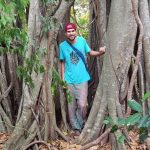 “Anton Potapov is a postdoctoral fellow at the University of Goettingen with broad interest in the soil food web structure and functioning. He is challenging himself to describe soil community, from microorganisms to large arthropods, as a single interaction network. He applies various molecular tools to understand energy fluxes, size structure and phylogenetic signals in trophic interactions in soil, working in both tropical (Sumatra) and temperate (Russia, Germany) ecosystems. Anton graduated from Moscow State University and finished his PhD at the Institute of Ecology and Evolution RAS, Moscow, focusing on the trophic ecology of Collembola (springtails) and applying stable isotope analysis as the main method. At present, he coordinates several initiatives including http://ecotaxonomy.org web platform and #GlobalCollembola.”
“Anton Potapov is a postdoctoral fellow at the University of Goettingen with broad interest in the soil food web structure and functioning. He is challenging himself to describe soil community, from microorganisms to large arthropods, as a single interaction network. He applies various molecular tools to understand energy fluxes, size structure and phylogenetic signals in trophic interactions in soil, working in both tropical (Sumatra) and temperate (Russia, Germany) ecosystems. Anton graduated from Moscow State University and finished his PhD at the Institute of Ecology and Evolution RAS, Moscow, focusing on the trophic ecology of Collembola (springtails) and applying stable isotope analysis as the main method. At present, he coordinates several initiatives including http://ecotaxonomy.org web platform and #GlobalCollembola.”
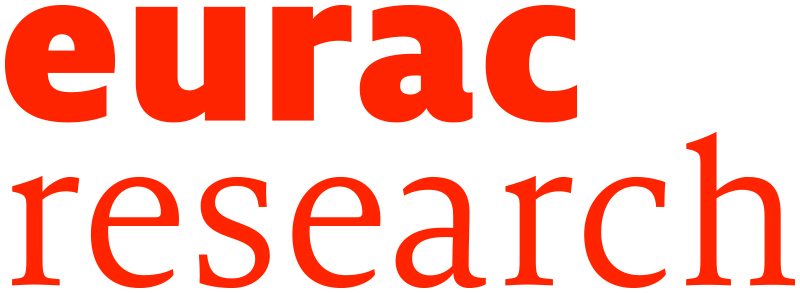
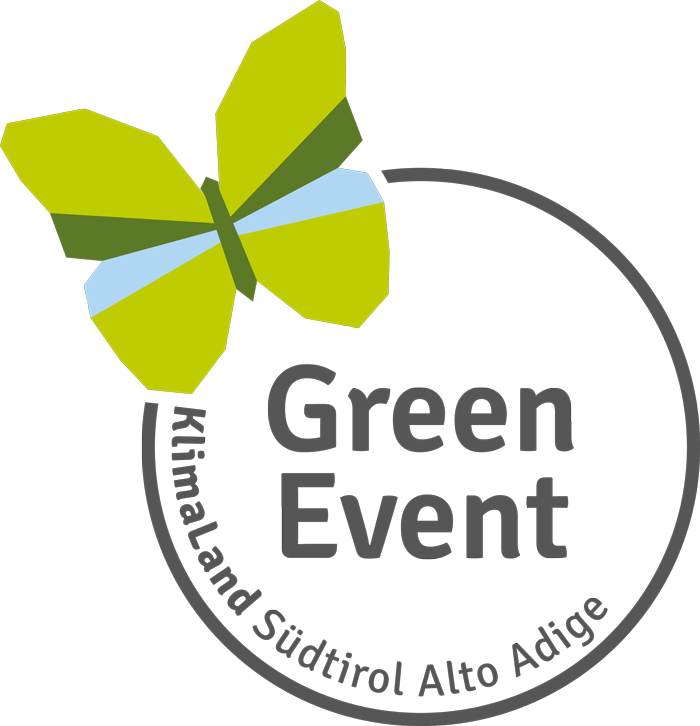
 • Session Keynote Speaker
• Session Keynote Speaker